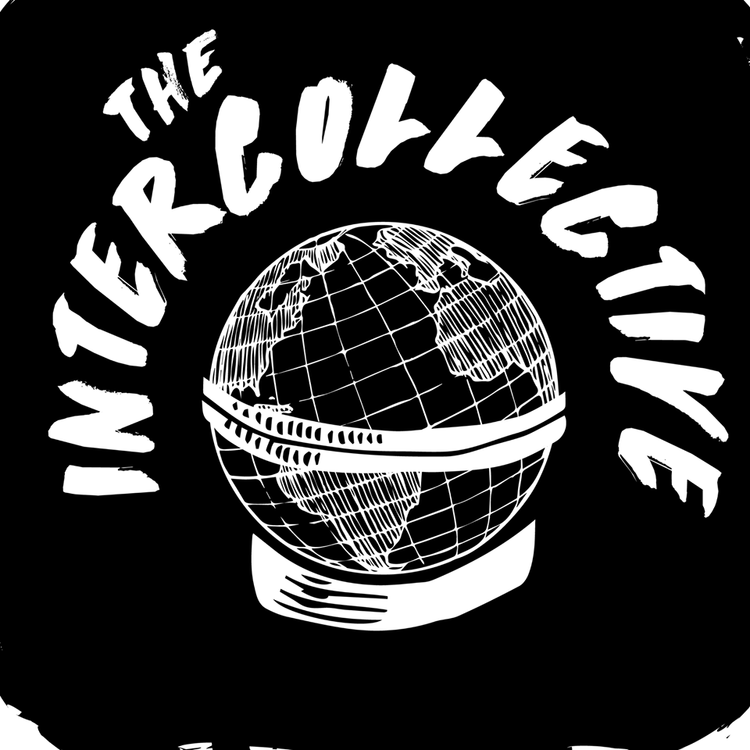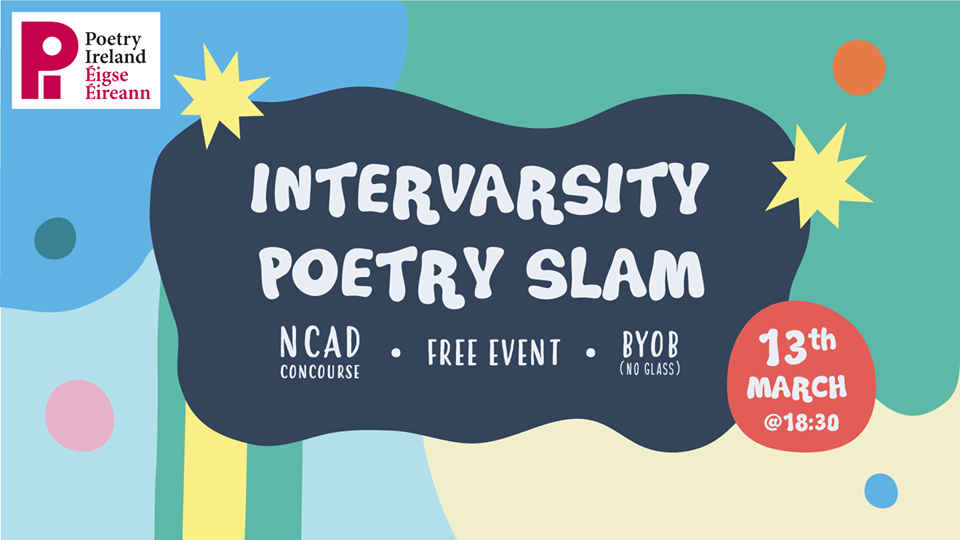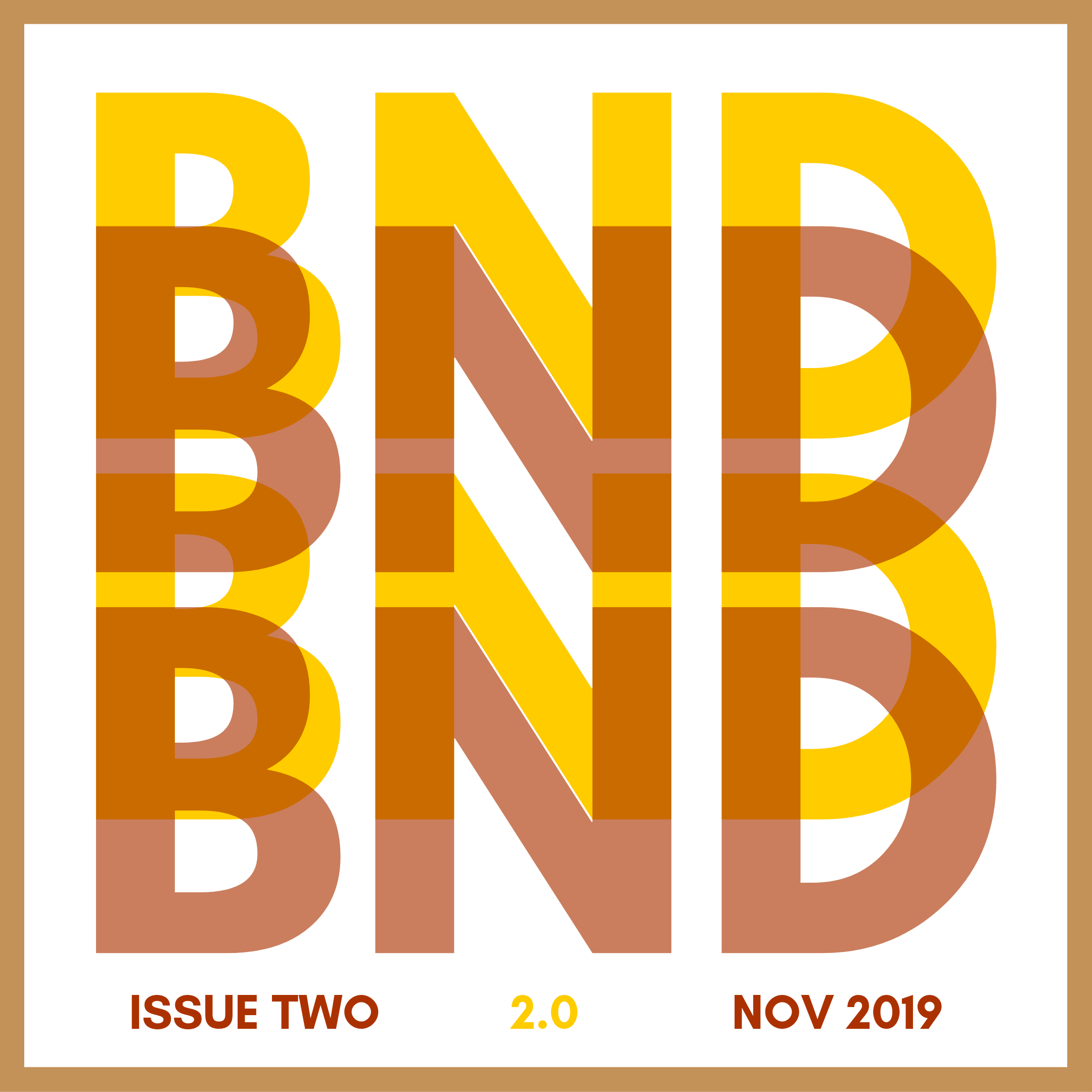Breaking the Cycle
On the eve of the release of the second Circle Sessions album, organizer David Halpin sits down with Adam Lawler to talk teething problems, the spoken word scene, and giving everyone a chance to make the most of their talent.
Boundless & Bare meets David Halpin in fine form in his natural habitat, in the International Bar in Dublin on the night of the Circle Sessions half an hour before the show starts. Halpin has been the organizer and host of the Circle Sessions for over three years, and the energy is rife with the release of the second album looming. That energy seems to come from a sense of momentum that comes with having boundless ambition and always wanting to improve what was done on a smaller scale before, something Halpin has in spades.
“When we did the first album, we made … I’m not gonna say a total haims of PR, but a pretty big haims of PR,” he says, “in the sense that we timed everything so that we’d have the physical product for the launch. Which is fine! But you have nothing then to give anybody in advance of it. So literally the day of the launch, that was December 2015, I had to drive to Shannon and pick it up because it didn’t arrive in Ireland until that day and if it hadn’t have arrived that day I would’ve had nothing at the launch to give out. Aw Jesus, the fuckin’ stress was terrible.”
“I would struggle to think of another group on our budget who would be attempting to do anything like this”
Halpin doesn’t seem particularly put out by this. Running an event like this and trying to make sure it’s always moving forward is a process where mistakes are common and motivating. This time they made sure everything was ready to go way in advance of the launch, setting up a pre-release for five days in advance of the release. Getting that down, however, just left room to try adding even more new elements.
“The launch is a little bit unusual in that we’re doing, the entire album from start to finish, as it was intended to be heard, with visuals. What we’ve challenged the artists to do — because down here in the International there isn’t a lot of visual, you’re on a stage two-by-one — is to come up with a visual for their piece. Which is really great for them but a massive undertaking for us, because we have to get stage positioning for twenty one acts. Some of that stuff will be set, in the sense that, well, if you have a band, I’m fucked if I’m gonna put one of you at the back of the room, one of you on the stage and one of you hanging out of the ceiling.” He laughs.
“We’ve already got loads and loads of different ideas from various different performers about how they imagined it, some of them totally undoable, but if you don’t ask you don’t get, so we have to be realistic about what we can actually achieve within the space. To be fair the vast majority of performers understood that, even the ones that came up with something totally outlandish. It should feel a little bit like it’s the same performer doing twenty one tracks, that’s the level of transition we’re aiming for. I would struggle to think of another group on our budget who would be attempting to do anything like this, so… we can be pleased and praised for thinking big, anyway.”
Thinking big and maintaining a sense of development, of creating avenues for comedy, music, and spoken word is crucial to Halpin, and that sense of discovering artists but also being able to give them a path is exciting.
“If you notice somebody who has an exceptional talent, part of your job must be to say to that person ‘maybe you don’t realise this but you are in the top 5% that I see in a year’”
“Part of our job at Circle Sessions is to give everyone a performance platform. For some that means just standing up here, doing their one piece on a Monday night and never darkening the door again! But then you have to have a certain amount of transition, that is to say if you notice somebody who has an exceptional talent, part of your job must be to say to that person ‘maybe you don’t realise this but you are in the top 5% that I see in a year’. And it’s a wonderful thing to be down here on a Monday and to be able to say that to somebody. Suddenly this performer stands up and you’re like ‘wow, where did this person come from?’”
It’s heartening to see that the motivation behind The Circle Sessions is to discover, uplift, and try to get artists to the height they deserve to be at. That isn’t to say that Halpin isn’t realistic about his ambitions, though.
“We don’t have the power to rent out a 3Arena or a Bord Gáis Energy Theatre. What we can do is inventive things in smaller spaces that we can afford, and we do that by raising funds within this room, so that we can advance those people as far as we can. Most people are stuck doing a desk job or whatever and can make twenty-five grand off that, whereas if someone says to you ‘what about the music?’ You go, ‘yeah, I used to play in a covers band…’ Saying that they have some stuff on SoundCloud. ‘Yeah yeah! Exactly, where’s the money?’
“I think in Ireland there’s no avenue for professional spoken word in terms of performance. You can promote yourself with YouTube videos and the like but I think monetising that is incredibly difficult. I think ironically part of the answer probably lies in advertising. I don’t know if it would take a Tesco or somebody else to really ram that home here,” he says with a smirk, “and there’ll always be someone who’ll say ‘well, art to promote a product isn’t art at all’.”
Halpin is clearly of the belief that there has to be a mainstream element to art, because there need to be levels to maintain a trickle-down or graduate-upward effect.
“There’ll always be some in Ireland who think of poetry as this kind of this almost vaguely Yeatsian thing of sitting in somebody’s drawing room and they were well-capable of supporting themselves ‘cause they had God knows what else supporting them and they were just sitting on the money and poetry was some kind of pastime rather than something that needed to fund a career.
“There’s an impression of poetry as somehow elitist in that regard, and I think the problem is the way it’s taught in school. There’s not really an emphasis on performance. How do you mark that? There are poetry exams in Royal Irish Academy and things like that but that’s a bit like learning grades on the piano or whatever, it’s kind of like ‘how can I get the best mark?’ It’s not the reading of poetry for the education of poetry I don’t feel. It has to have broader appeal than simply somebody saying ‘I’m gonna do grades in poetry’.
“A lot of kids are introduced to poetry either through a textbook — and it’s this vaguely historical notion, like “ah poetry, remember that thing? We used to be good at that!” — or it’s six years old, learn the poem by rote and regurgitate it in a line. Neither way really does anything for poetry.”
“I think that’s the big success of performance poetry in Ireland, it’s that people are talking about things others wanna hear about. It’s not Wordsworth seeing a daffodil, y’know what I mean?”
Halpin hopes that this is where the Circle Sessions albums can help, to give people that sense that if it begins to become widely acceptance, people’s work will be ‘out there’ and people will be exposed to poetry about topics that are current and of interest to them.
“I think that’s the big success of performance poetry in Ireland, it’s that people are talking about things others wanna hear about. It’s not Wordsworth seeing a daffodil, y’know what I mean? It’s about social justice and change, certainly a lot of poetry on our album is. I think it’s a really important message that people need to hear, in a spoken word form, not just wrapped up in lyrics of a song.”
Recording spoken word in a purely audio sense is something that isn’t really explored in any real way apart from programmes on RTÉ Radio 1, and Halpin realises that the Circle Sessions 2 is filling a niche which is bursting with potential.
“There’s recording poetry in a YouTube type fashion, which is fine! If you have a particularly catchy poem, you’ll go viral… maybe. But once you’ve stopped going viral, what’s left?” He laughs incredulously, and poets who strike gold on platforms like Button Poetry only to falter when it comes to their next move come to mind. A lot of people write one cracker poem that’s seen by 10,000 people and that’s the one poem they’re known for and that’s it. Society has yet to truly tap into what they can harness poetry for.”
It is society’s loss, and the Circle Sessions’ gain. With people like Halpin trying to work within constraints and pushing past them, it’s comforting to imagine that this passion and vision will win out.
The Circle Sessions 2 Album Launch Live Event is on the 4th of December and the album will be available on iTunes and all streaming services, as well as in physical copies available at the event.
Written by Adam Lawler











